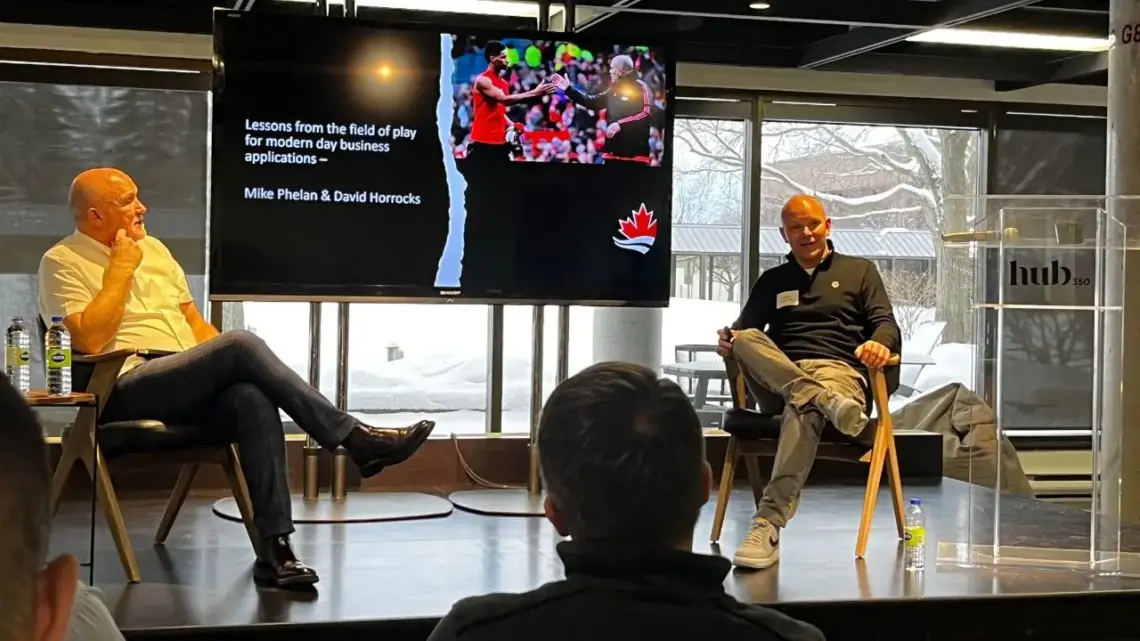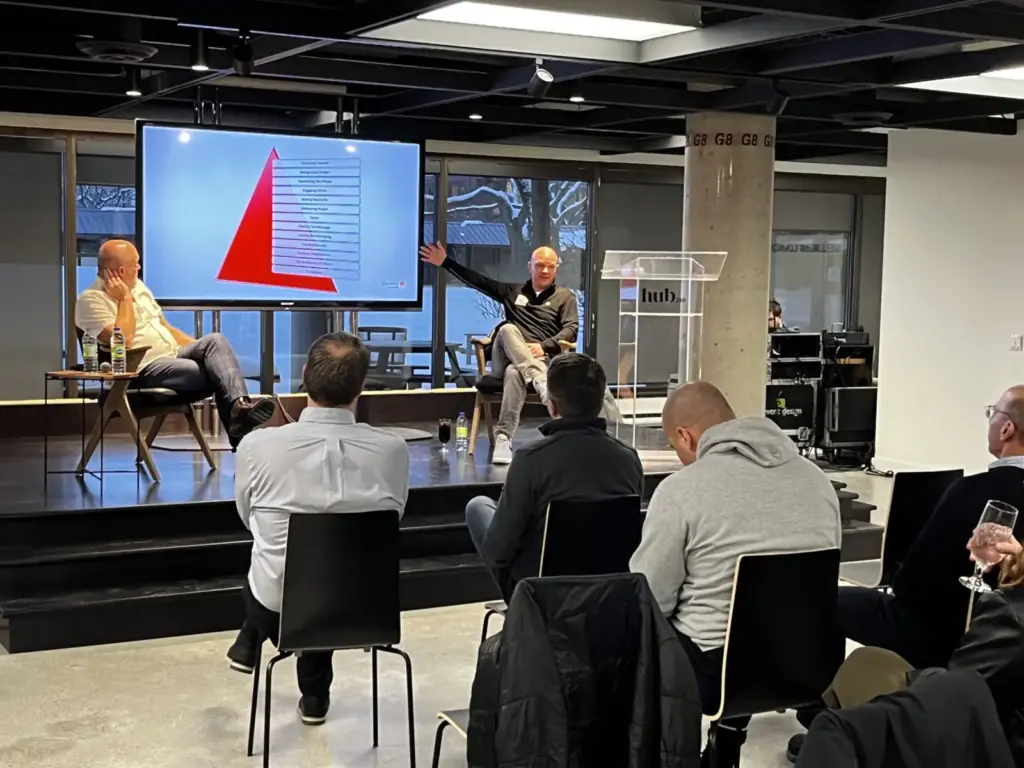
CU@Kanata and Carleton Future EDge offered a different pitch to business leaders in Kanata North recently: that a world-class football club is the perfect example for business on how to perform under constant pressure.
Manchester United’s Mike Phelan and David Horrocks talked about the inner workings of a club that was once a small group, with 100 employees and valued at £25 million, and grew to a massive brand the NYSE values at $1 billion, employing more than 1,000 people.
They gave the talk during a recent executive leadership session held at KNBA’s Hub350.
There is pressure that comes with being such a massive brand, Phelan said. He pointed out that if you searched Alphabet, the company that owns Google, you’ll have 2.5 million hits. A similar search of Manchester United will garner 54.5 million results.
“It opens a lot of doors, but it brings a lot of noise,” Phelan said. “You have to separate the noise from what’s important. I wake up in the morning and I’ve got 75 WhatsApp messages from people asking me if I’ve seen what the press is saying about us. That’s noise.”
He pointed out that there is the business side of Manchester United, the club, and then there is the Manchester United team. While he was coach of the team, Phelan said he was very aware of the pressures on the club.
“The business can be a monster,” Phelan said. He added that if the team won, the business had an easier job with its brand. With games every three days, that meant he was constantly being tested.
“It was an environment of chaos,” Phelan said. “But I like chaos.”
The games, like development in business, he points out, came with some failures. But, he said, his strategy in coaching under such intense pressure was to adopt a growth mindset.
“My mindset was as soon as the game finished, I’m doing it again. I can go out again.”
Horrocks, who worked with Phelan at Manchester United and spent 7-8 years in the tech sector, did his PhD thesis on expert performance based on extended studies with Manchester United and in European/USPGA and South African Tour golf.
He turned the discussion to recruiting for the team, and how it applies to business also. He said he looks for one key element in younger players: hunger.

“It’s about recognizing the hunger. They may not be ready to deliver what you want right away, but the hunger. I want then to deliver something I didn’t ask for. That’s their hunger showing,” Horrocks said, offering it is a leader’s job to nurture that.
In a profession where a player’s personal brand can have a massive a huge following, Phelan was asked how he balanced a player’s personal goal with the organization’s goal.
Without hesitation, Phelan said, they have to run together. And the player has to realize that the team winning is good for their personal brand. Speaking of players like Ronaldo and Beckam, Phelan said, “no one is bigger than the club.”
Phelan said he worked hard on the organizational culture.
“Culture is what drives a business, it’s what drives someone’s decision to join. They might ask ‘what is it I’m actually joining? So, they do their homework, they do their research,” he said.
Someone might join an organization for a larger salary, but it’s the culture that makes them stay.
“Other clubs don’t push people to get better,” Phelan said.
He added, “It’s okay for players to make mistakes, but I want them to play at their best. Other clubs don’t push people to get better.”
“The push for all of us at Manchester United is to constantly improve.”
